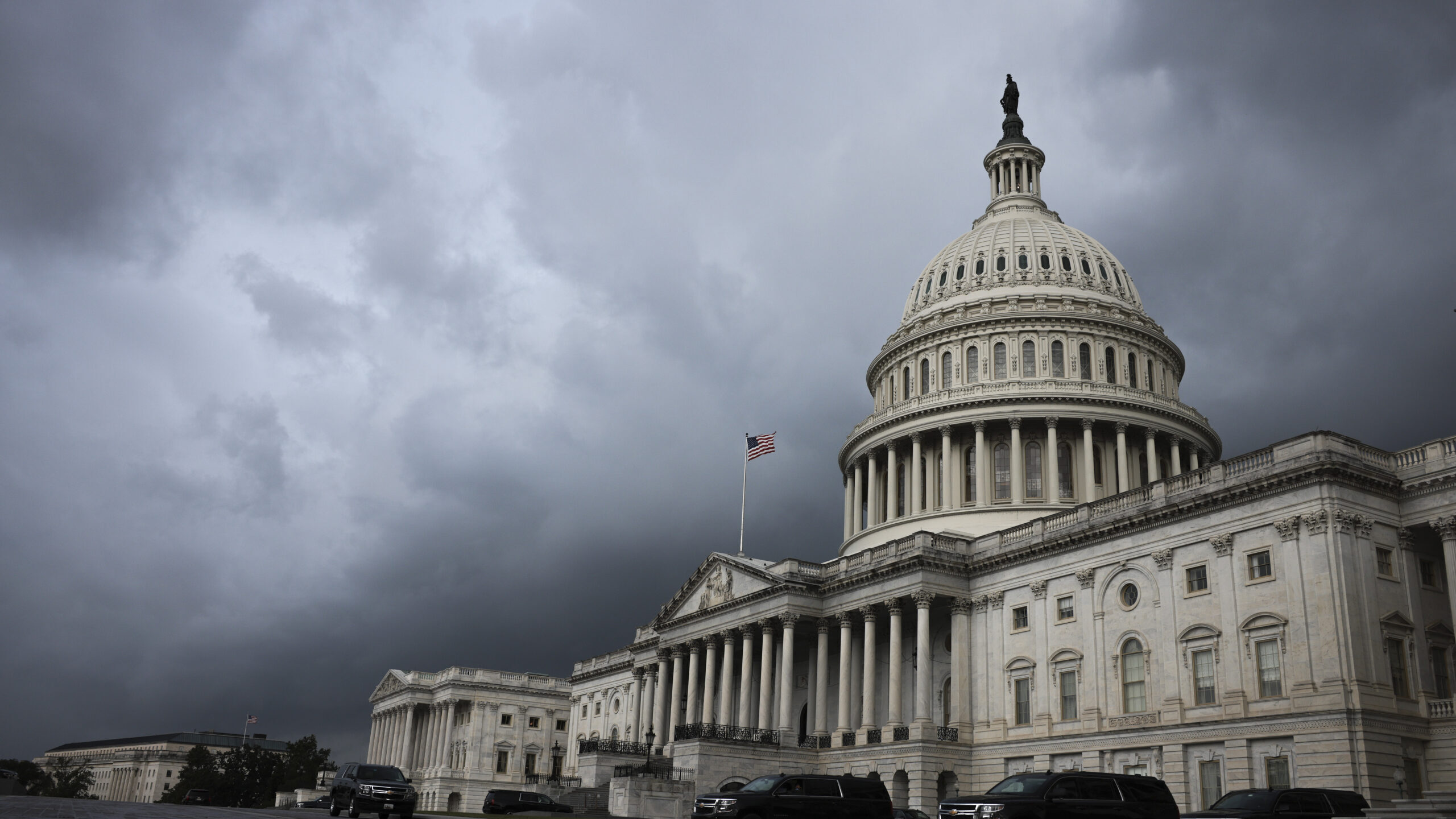
Questions over Chinese plans are poised to consume lawmakers time this year. (Photo by Anna Moneymaker/Getty Images)
WASHINGTON — Congressional lawmakers established two panels this week that prime them to spend 2023 sorting through a host of questions about Chinese ambitions around the globe and the impact on American security.
In the House, members voted 365-65 to set up an Select Committee on China that will be helmed by China-hawk Rep. Mike Gallagher, R-Wis., while both chambers announced a bipartisan commission to examine the 2022 National Defense Strategy (NDS) that deems China as Washington’s top strategic competitor.
“China and Russia are both going to be major global powers going forward; That’s not going to change,” the incoming ranking member of the House Armed Services Committee Rep. Adam Smith, D-Wash. said Wednesday at the Brookings Institution. “We just want to make sure that there are major global powers that are not threatening everybody else… This new China special committee that’s being created…that’s going to be one of their big challenges.”
Although the formally-named House Select Committee on China is in its infancy, Gallagher and House Speaker Kevin McCarthy, R-CA, last month published an op-ed on Fox News outlining their multi-pronged goals, to include shoring up the US supply chain so it does rely so heavily on China; strengthening the US military; and protecting Americans from China’s “theft” of personal information, intellectual property, and jobs.
RELATED: The new National Defense Strategy keeps the Pentagon’s focus locked on China
“We cannot afford to misread the [Chinese Communist Party’s] CCP’s intentions. The select committee will make the urgent case for aiding Taiwan in its self-defense and build relationships with our other Indo-Pacific allies,” the duo wrote.
“As China uses its growing economy to modernize its military, we must also develop new weapons and stockpiles to project power, preserve our global influence, and protect our forces, including in space and cyberspace,” they later added.
Smith said he and Gallagher have begun preliminary conversations over the vision and direction of the committee will take but said he will reserve judgment down the road when it becomes clearer if this will be a productive panel or a “China bashing exercise” and simply goes “sideways” create more conflict than it solves.
“Gallagher is a very smart, very serious person and that gives me cause for optimism that he wants to take this in the right direction,” Smith added. “On the other hand, I’m surprised at times, some of the people who just fall into full-scale China bashing and talk about how terrible China is, which it isn’t. We can’t let them do this; We have to stand up against them on every single turn.”
As House lawmakers work towards standing up that new select committee, they have also been busy working with their counterparts in the Senate establishing a commission to examine President Joe Biden’s 2022 NDS, a mandate included in the fiscal 2022 National Defense Authorization Act (NDAA).
Lawmakers announced on Wednesday that former Congresswoman Jane Harmen, a previous ranking member on the House Intelligence Committee, will chair the commission while Eric Edleman will be by her side as the Republican’s co-chair pick.
Edleman, a former Undersecretary of Defense for Policy, previously served as the co-chair for the National Defense Strategy Commission established to wade into the 2018 NDS released by the Trump administration. Three additional members will return to the commission as well — Jack Keane, Thomas Mahnken and Roger Zakheim — in a move that could potentially provide a level of continuity. New members of the commission are Mara Rudman, Mariah Sixkiller, and Alissa Starzak.
The eight members are now tasked with examining the 2022 NDS that doubled down on the existing framework that deems China as the “pacing challenge” for the department, and ranks Russia as an “acute threat” that is “immediate and sharp.” North Korea, Iran, and violent extremist organizations follow on the list of threats.
“The commission shall conduct a comprehensive assessment of the strategic environment to include the threats to the national security of the United States, including both traditional and non-traditional threats, the size and shape of the force, the readiness of the force, the posture, structure, and capabilities of the force, allocation of resources, and the strategic and military risks in order to provide recommendations on the national defense strategy” lawmakers wrote in the FY 2022 NDAA.
If the commission adheres to its mandate, a report on its findings and recommendations will be complete by January 2024.
As both panels find their footing over the coming weeks, the administration is plowing ahead with plans to shore up partnerships in the Indo-Pacific region at a time when tensions with Beijing are rising, in part, over Taiwan.
Australia, the United Kingdom and the United States, for example, are continuing to work through their 2021 trilateral security pact for the Indo-Pacific region — albeit, not without recent drama — while this week top Japanese officials visited London and Washington to shore up their respective defense relationships.
“China’s belligerence towards Taiwan, towards the region, is beginning to have a negative effect,” Smith said, separately noting “Countries like Japan…they’re taking this very seriously; They’re figuring out how they can build up their defenses.”





















